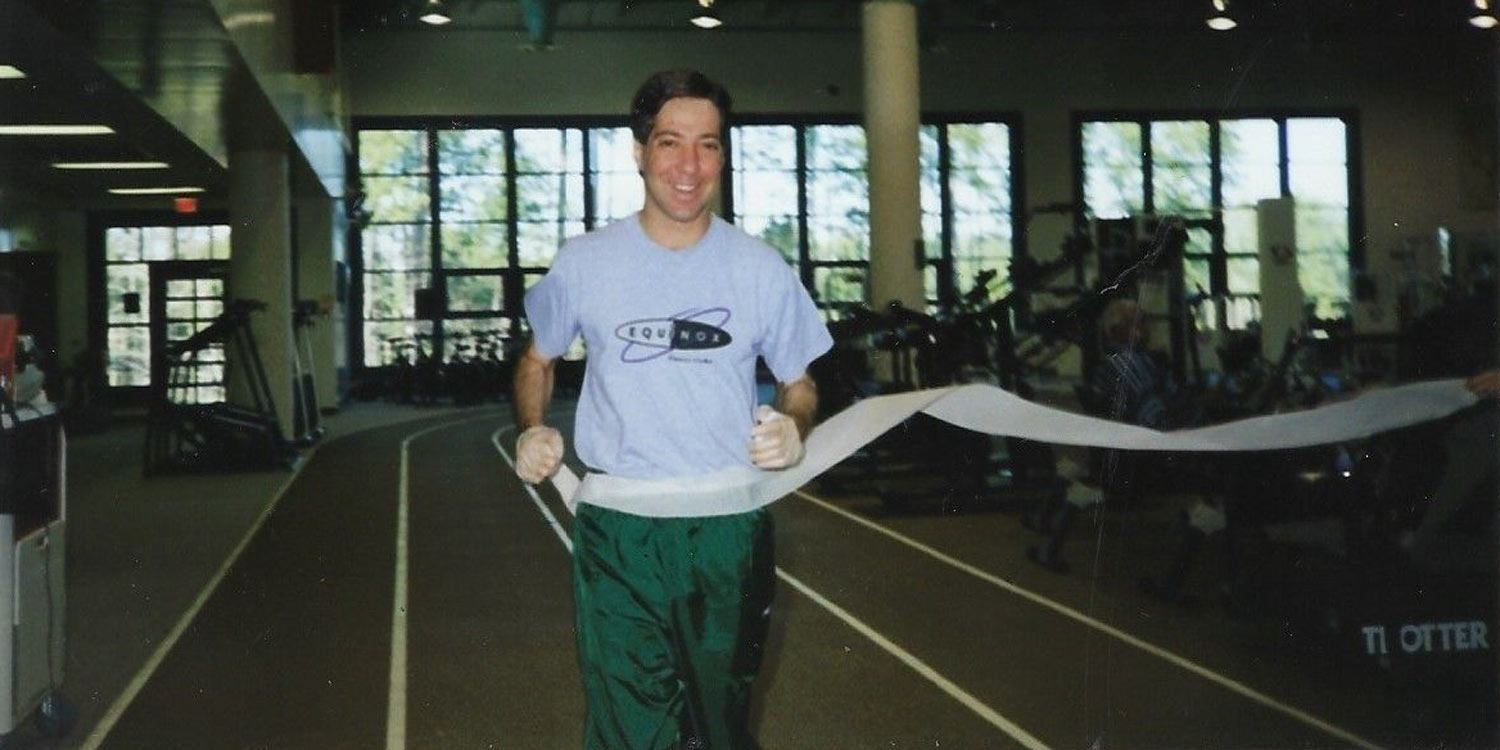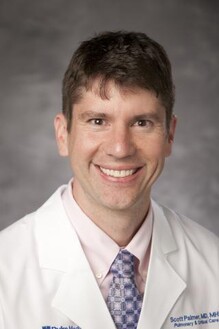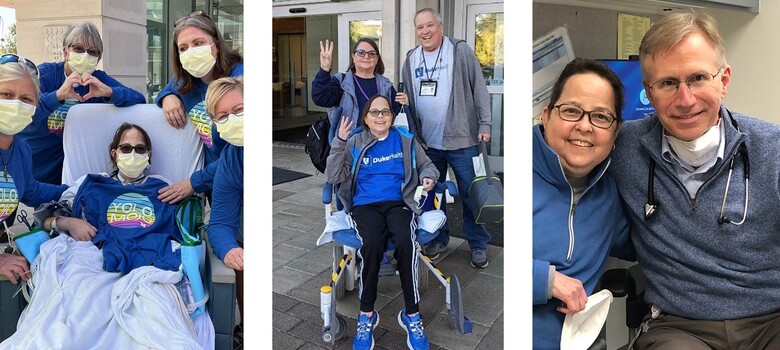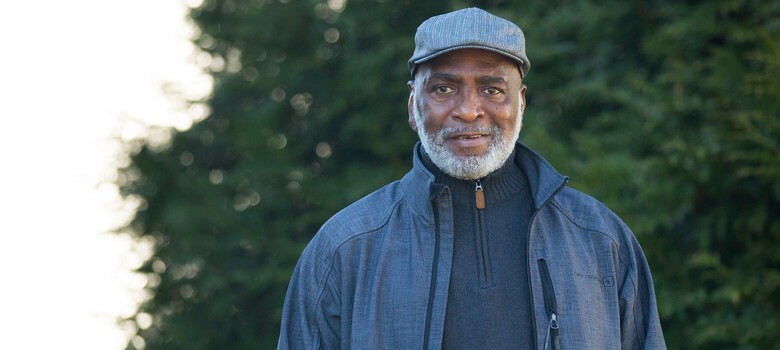 From the DukeHealth.org archives. Content may be out of date.
From the DukeHealth.org archives. Content may be out of date.
25 Years After Lung Transplant at Duke, New York Man Still Going Strong

Gary Klausner heads towards the finish line of a 10k race in Long Island, NY. Klausner will celebrate the 25th anniversary of his double lung transplant in December. Photo courtesy of Ed Grenzig.
Not much holds Gary Klausner back these days. The Long Island, NY native was diagnosed with cystic fibrosis when he was 10 but was physically active until he developed a life-threatening respiratory infection at age 33. Klausner needed a lung transplant, but few centers were willing to consider him because of his condition. Then he went to Duke Health, which accepted him as a lung transplant candidate. In December 2023, Klausner will celebrate the 25th anniversary of his successful double lung transplant at Duke, which he still visits for twice-yearly appointments.
Managing Cystic Fibrosis from Childhood Through Adulthood
Klausner was often sick as a child and was noticeably smaller and thinner than his peers. In 1975, he was diagnosed with cystic fibrosis and was told he had a life expectancy of 16 years old. Still, encouraged by his parents, Klausner had an active childhood and played basketball and other team sports. He eventually married and held a demanding job as a trader on Wall Street, all while managing his condition with medication and exercise.
A Deadly Lung Infection Changed the Game
When his wife, Robin, was pregnant with their twin boys, 33-year-old Klausner contracted a deadly respiratory infection called burkholderia cepacia. His condition declined to the point where he needed around-the-clock care, supplemental oxygen, and IV antibiotics. The only remedy was a double lung transplant, but only two centers in the U.S. and Canada would evaluate a patient who was so ill. Duke was one of them. With the help of his parents, Klausner traveled to Durham, where transplant specialists performed a comprehensive evaluation. Klausner then returned to New York, and three days later he received the good news -- he was accepted for lung transplantation at Duke and was told to get on the next flight to North Carolina to be waitlisted for donor lungs.
Learn about Klausner's journey from a life-threatening illness to the excellent health he enjoys today.
An Uncertain Future
Klausner knew that his life hung in the balance but waited to travel to Duke so he could witness the birth of his sons. Not knowing if he would see them again, before he left for North Carolina he made a videotape for his family and told Robin that no one was to watch it unless the worst happened. “It’s been sitting unwatched in a safe deposit box for 25 years,” Klausner said.
He then headed back to Duke to stay in Durham, participate in pulmonary rehabilitation, and wait for a lung transplant donor. Three and a half weeks later, Klausner got a call from his transplant coordinator. They had a matched donor. Klausner headed to the hospital for his transplant surgery.

Following Doctors’ Orders
After a successful transplant, a month-long hospital stay, and pulmonary rehabilitation, Klausner returned home. Scott M. Palmer, MD, a transplant pulmonologist at Duke Health, was part of Klausner’s care team in 1998 and continues to see him twice a year for check-ups and testing. Klausner, who now works in medical sales, could see a doctor in New York or have virtual visits, but he is incredibly grateful for the transplant he received at Duke and appreciates the continuity and quality of care. “I feel like Dr. Palmer and I are a team,” he said.
Data show that transplanted lung survival rates are not as good as for other organs like kidneys or livers. “There are many risks of complications that can occur along the way,” explained Dr. Palmer. Klausner attributes the longevity of his lungs to an excellent transplant team, a strong support system, and a positive attitude. He also closely follows Dr. Palmer’s recommendations for exercise and medications. Since his surgery, Klausner exercises every day and has participated in countless races, from half marathons to 5Ks. “Exercise was always important to me even before the transplant, and in 25 years I can count on two hands the number of times that I've missed my medications,” he said.

"Duke has an outstanding program with an increasingly large number of patients who are 10, 20, or 25 years past transplant."
Striving to Be the “Guinness World Records Guy” of Lung Transplant Survivors
In anticipation of his 25th year post-transplant, Klausner is on a mission to inspire others with his story and the positive impact lung transplant can have on the lives of patients and their families. He also hopes to beat the record -- currently set at 30 years -- for the longest surviving person after lung transplant. “I want to be the Guinness World Records guy,” he said. Dr. Palmer is one of his biggest supporters. “Duke has an outstanding program with an increasingly large number of patients who are 10, 20, or 25 years past transplant,” he said. “It’s quite exceptional, quite wonderful, to celebrate individuals like Gary.”




